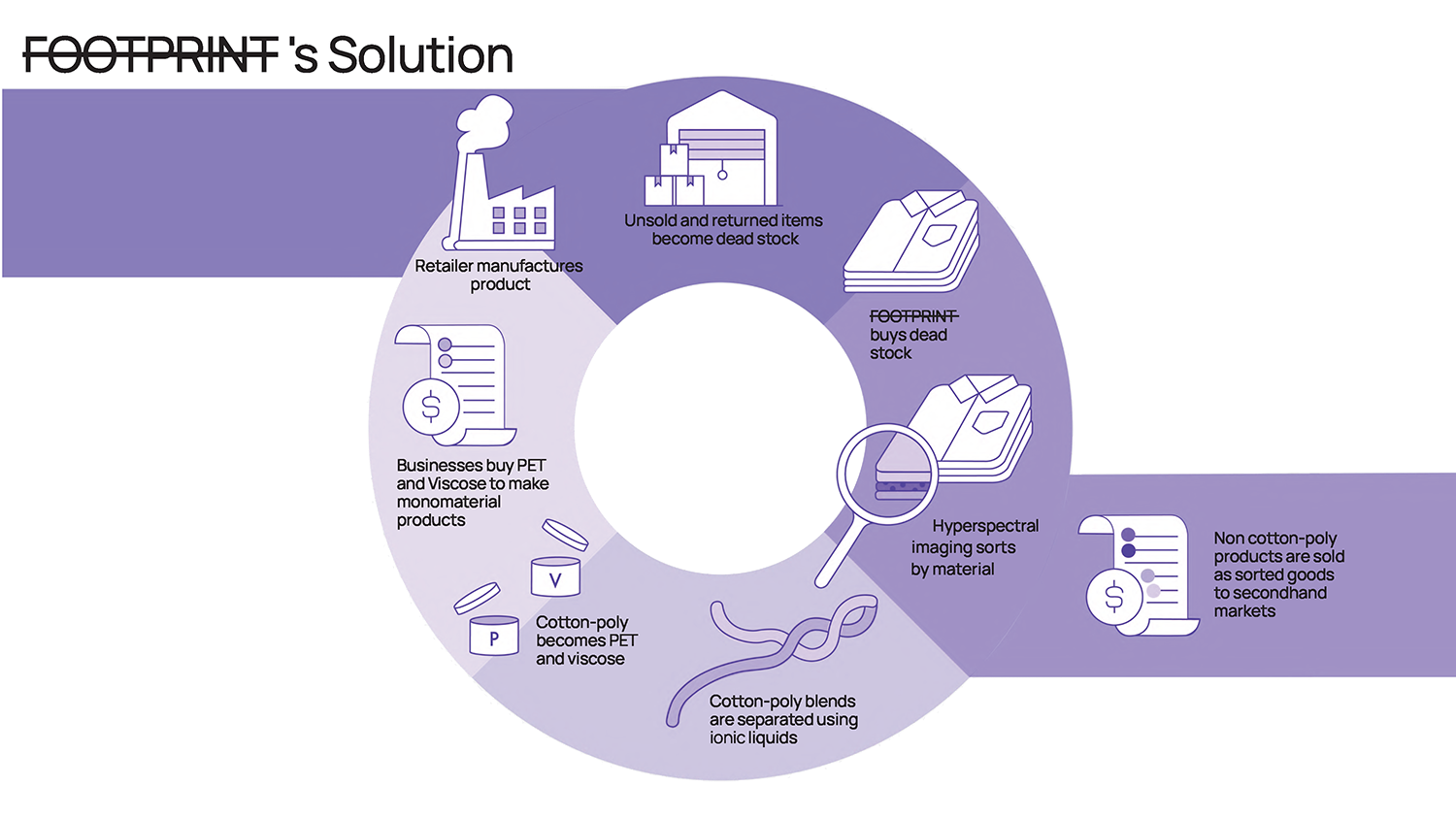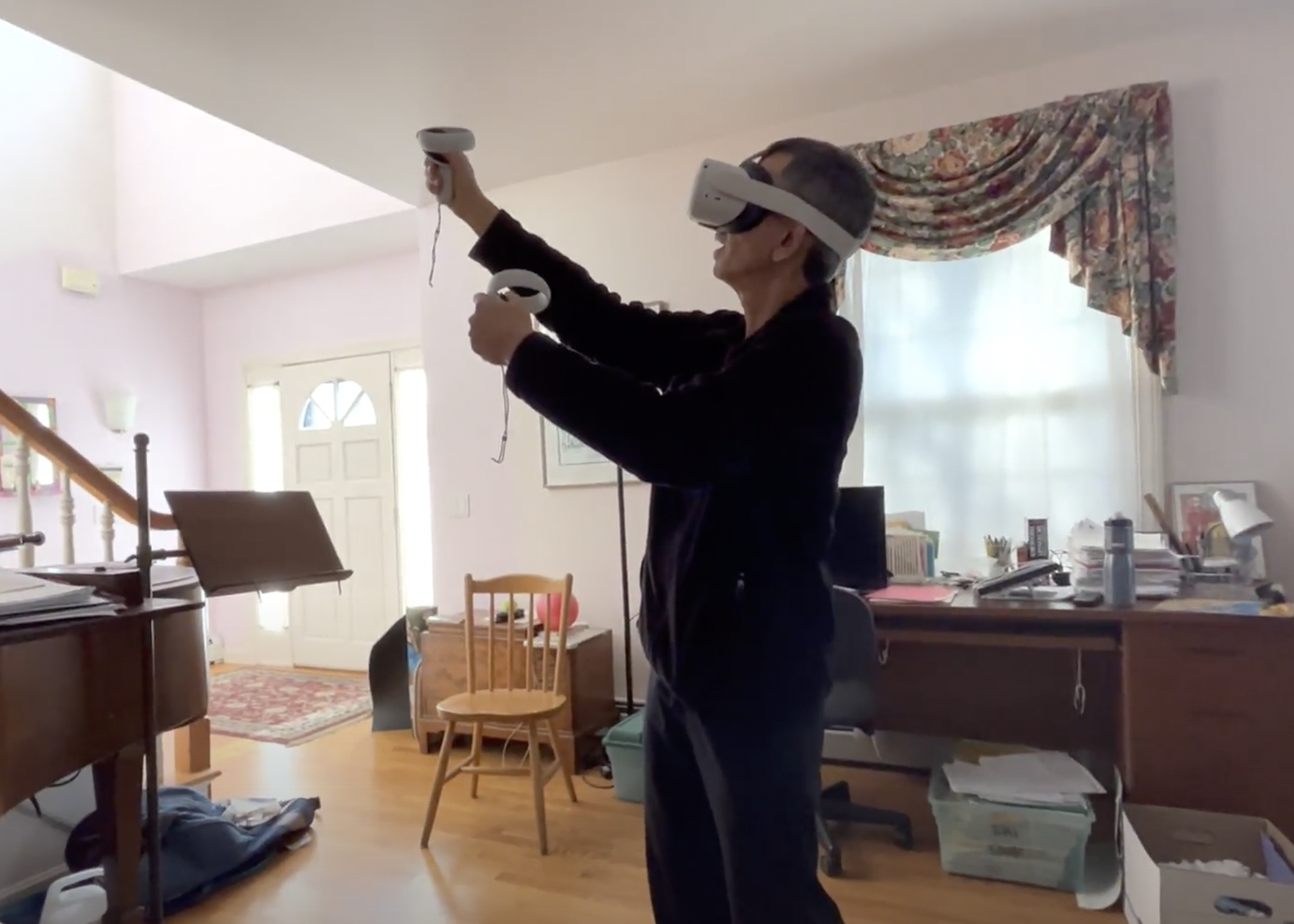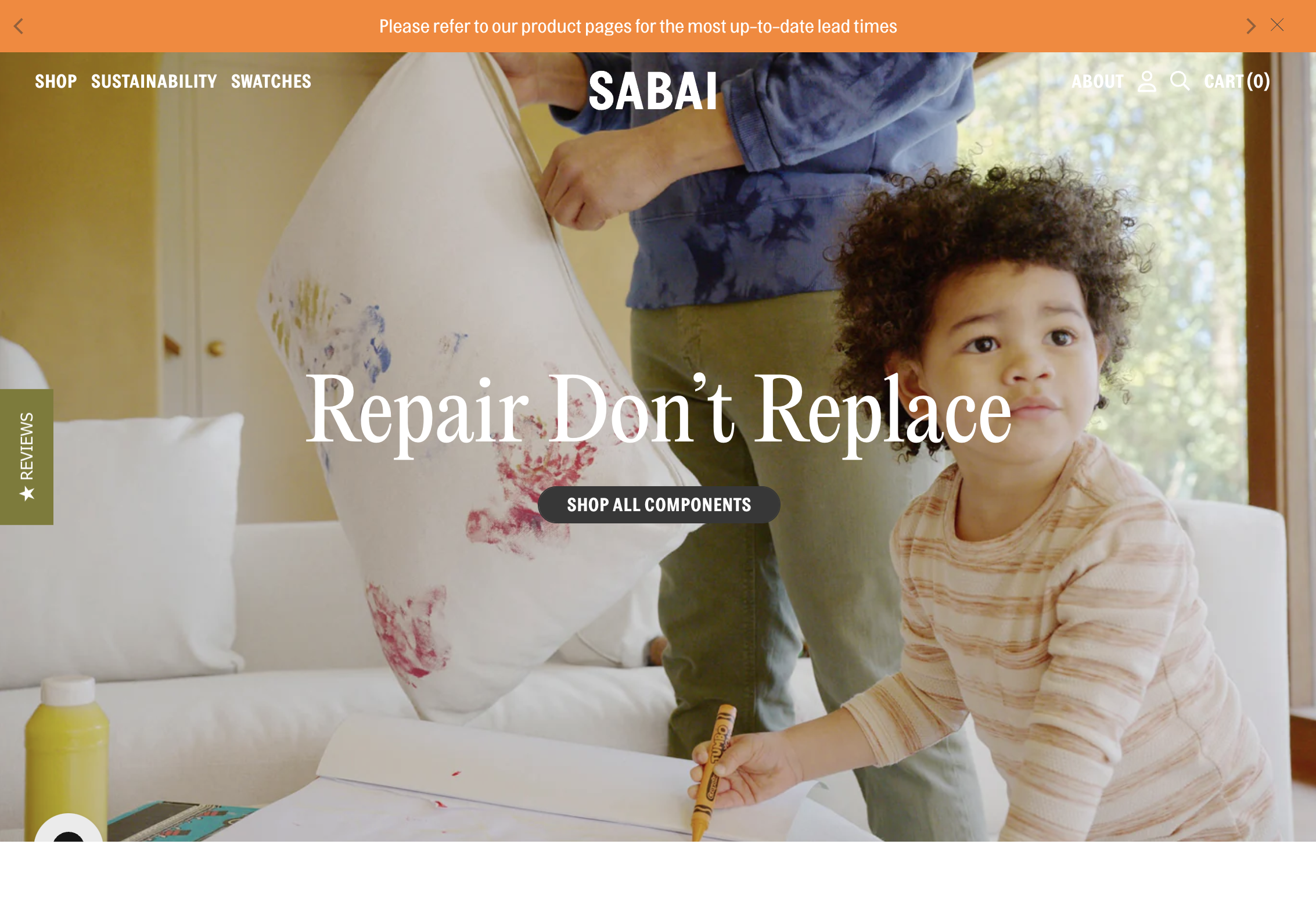
Sabai Design
2024
While working at Sabai Design, I saw a gap in our sustainablity oppurtunity and engagement with customers through our “Repair Don’t Replace” program. This was a program that already existed but was not widely known or understood by customers (and frankly even employees).
The goal of this research was to identify pain points and roadblocks for consumers in order to increase engagement with the program.
2024
While working at Sabai Design, I saw a gap in our sustainablity oppurtunity and engagement with customers through our “Repair Don’t Replace” program. This was a program that already existed but was not widely known or understood by customers (and frankly even employees).
The goal of this research was to identify pain points and roadblocks for consumers in order to increase engagement with the program.
What is “Repair Don’t Replace?”
Skills Used
User Journey Mapping
Primary User Research
Market Research
Miro
It is a unique consumer facing buying option in order to increase environmental sustainability, by giving customers the option to buy and replace individual components instead of having to buy a whole new product.
In practice this means; if your dog chews up one of the wooden legs of your couch - you don’t have to buy a whole new couch! Instead, you would go to Sabai’s website and be able to buy just a singular leg for your model of couch. Much cheaper and much less wasteful :)
User Journey Mapping
Primary User Research
Market Research
Miro
It is a unique consumer facing buying option in order to increase environmental sustainability, by giving customers the option to buy and replace individual components instead of having to buy a whole new product.
In practice this means; if your dog chews up one of the wooden legs of your couch - you don’t have to buy a whole new couch! Instead, you would go to Sabai’s website and be able to buy just a singular leg for your model of couch. Much cheaper and much less wasteful :)

Phase 1 - Understanding Context
The start of this project began with gathering all of the background information needed in order to design a time line and deliverables for the research.
In this phase I spoke with the Head of Customer Experience as well as other company employees to get a sense of their understanding of the program.
Findings
- Employees didn’t know how to find it on our website
- Employees didn’t understand what “Repair Don’t Replace” was
- Head of Customer Experience wanted “Repair Don’t Replace” to be marketed more
Phase 2 - Speaking with Users
Primary Research
After collecting background information, I created an interview script in order to guide our user interview.
From speaking with an active community member of ours it became very clear that she LOVED “Repair Don’t Replace,” and unexpectedly, it is the #1 selling point she mentions when reccomending our products to her friends.
Findings
1) She always mentions “Repair Don’t Replace” when talking to her friends about Sabai
Direct Quotes:
“It’s the first & last couch they’ll ever buy”
“You don’t have to pick between colors... you can get both!”
2) The value of our caring and personal customer experience is invaluable
3) Our product is great for an active and growing lifestyle.
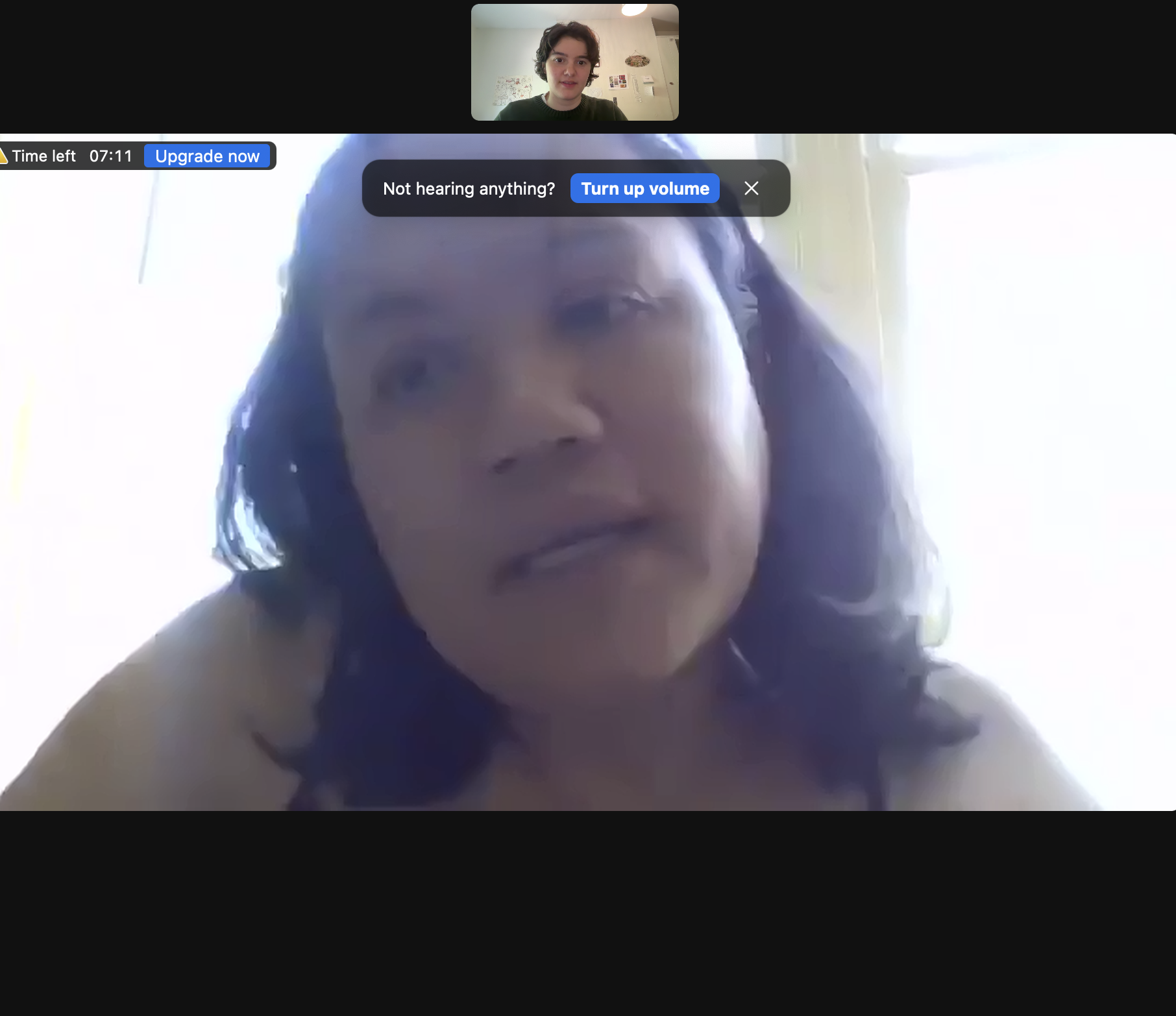
Research Artifact - User Journey Map
In order to visualize the experince that the user shared with us, I created a user journey map that highlighted the pain points as well as areas of oppurtunity for the company.
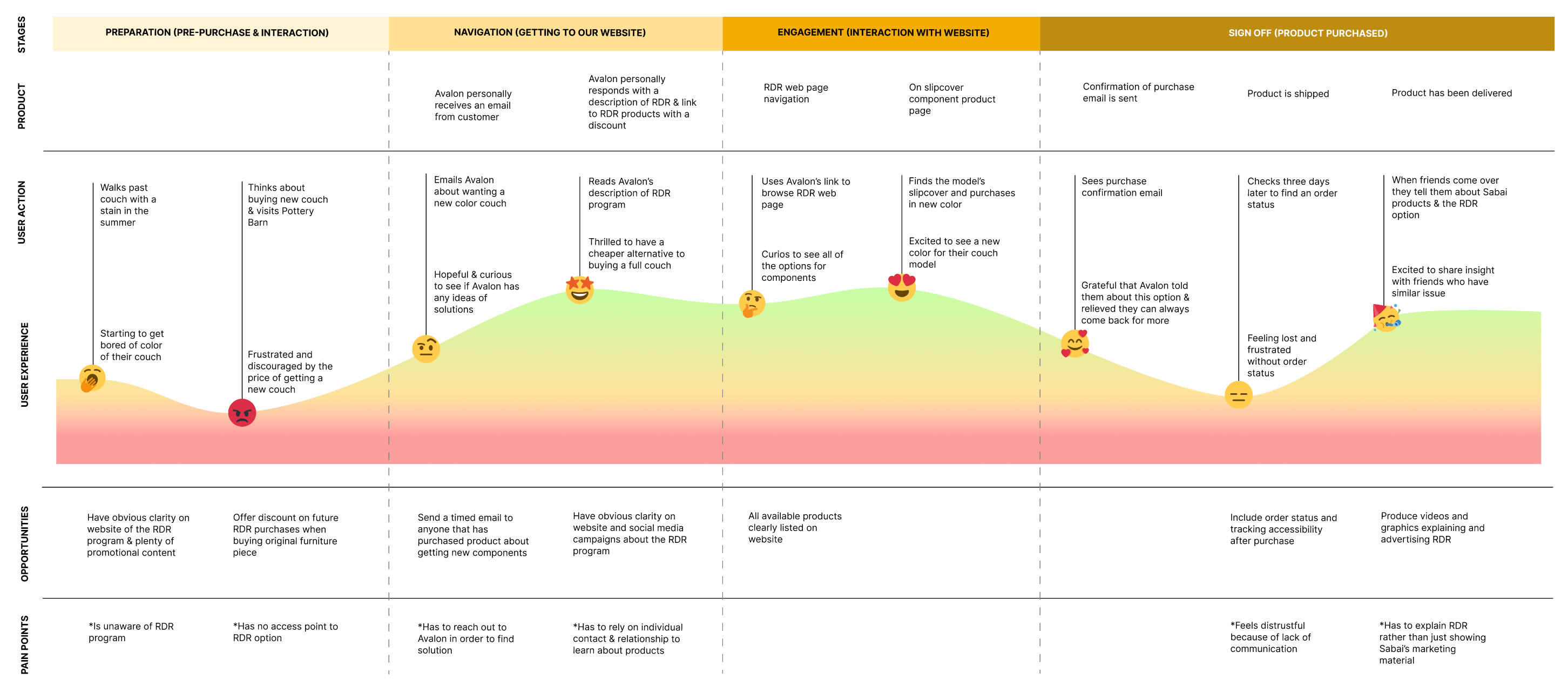
Phase 3 - Shareback
Due to the short timeline of 2 weeks for this project, it was a creative endeavour of its own to thoroughly share this data back with managers with enough backing and urgency in order gain interest in continuing the work. I did so by creating a presentation that was shared with the CEO that then asked me to continue with the further steps of research.






